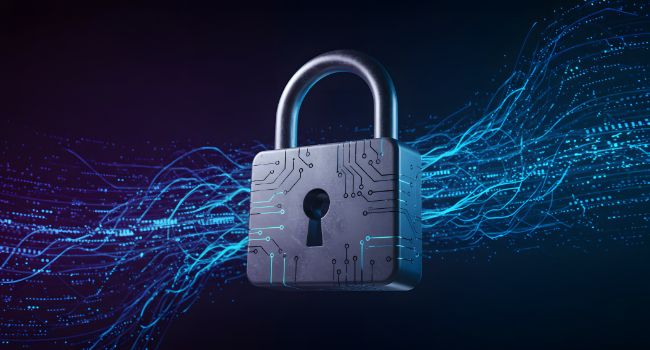New report finds security incidents are a "routine reality" for nearly half of organizations using open-source software in production.
- By Jesse Jacobs
- Feb 20, 2026

Axis Communications has achieved SOC 2 Type 2 attestation, validating the long-term effectiveness of cybersecurity and operational controls across its Axis Cloud Connect platform and cloud-enabled physical security solutions.

Security Today is pleased to announce the 2025 CyberSecured Awards winners. Sixteen companies are being recognized this year for their network products and other cybersecurity initiatives that secure our world today.
The Security Industry Association (SIA) has launched the Data Center Advisory Board, a panel of experts that will provide guidance on data center security topics to the SIA Board of Directors and related resources to SIA members. Jim Black, senior director and security architect at Microsoft, has been named chair of the group.
Axis Communications, a global industry leader in video surveillance, announces it has signed the U.S. Cybersecurity & Infrastructure Security Agency’s (CISA) Secure by Design pledge to transparently communicate about the cybersecurity posture of Axis products.
Viakoo, a leader in vulnerability remediation for IoT, OT, and CPS systems today announced the establishment of the “Cyber Defense Leadership” scholarship at the University of Nevada, Reno. This new program will provide $10,000 to fund an annual scholarship to recognize and nurture the next generation of cybersecurity talent and leadership at the University. With the emergence of new types of threat vectors, including AI-driven threats, more focus on creating next generation security solutions is urgently needed.

Ransomware attacks have risen for the first time in six months, increasing by 28% month-on-month to 421 attacks. While overall attack volume remained below 500, the uptick may signal a renewed escalation heading into the year’s most active period for cyber criminals.

Modern enterprises are grappling with an increasing number of identities, both human and machine, across an ever-growing number of systems. They must also deal with increased operational demands, including faster onboarding, more scalable models, and tighter security enforcement. Navigating these ever-growing challenges with speed and accuracy requires a new approach to identity governance that is built for the future enterprise.
- By Martin Kuhlmann
- Oct 21, 2025

AI isn’t just transforming how we work. It’s reshaping how cybercriminals attack, with threat actors exploiting AI to mass produce malicious code loaders, steal browser credentials and accelerate cloud attacks, according to a new report from Elastic.

Comcast Business recently released its 2025 Cybersecurity Threat Report, a comprehensive analysis of 34.6 billion cybersecurity events detected between June 1,2024 and May 31, 2025. Now in its third year, the report offers business leaders a unique perspective into the evolving threat landscape and provides actionable insights to help organizations strengthen their defenses and align cybersecurity with business risk.

For years, the worlds of physical security and information technology (IT) remained separate. While they shared common goals and interests, they often worked in silos.
- By Matthew Fabian
- Sep 09, 2025

Laserfiche, a SaaS provider of intelligent content management and business process automation, recently released new survey findings on AI adoption in the workplace, revealing that nearly half of Americans (49%) who use AI at work keep it to themselves, with 15% deliberately avoiding telling their manager.

Picus Security recently released The Blue Report™ 2025, based on more than 160 million real-world attack simulations. Now in its third year, the report provides a data-driven assessment of how well security controls perform against today’s threats — and this year’s findings are the most concerning to date.

Some of the most revolutionary advances in artificial intelligence include browser-based AI agents, which are self-sustaining software tools integrated into web browsers that act on behalf of individuals.

VIPRE Security Group, a cybersecurity, privacy, and data protection company, has released its email threat landscape report for Q2 2025. Through an examination of worldwide real-world data, this report sounds the alarm on the most significant email security trends observed in the second quarter of 2025, enabling organizations to develop effective email security defenses for the remainder of the year.

Veracode, a provider of application risk management, recently unveiled its 2025 GenAI Code Security Report, revealing critical security flaws in AI-generated code. The study analyzed 80 curated coding tasks across more than 100 large language models (LLMs), revealing that while AI produces functional code, it introduces security vulnerabilities in 45 percent of cases.
Recently, Simbian introduced the first benchmark to comprehensively measure LLM performance in SOCs, measuring LLMs against a diverse range of real alerts and fundamental SOC tools over all phases of alert investigation, from alert ingestion to disposition and reporting.
Concentric AI today announced that it will showcase its industry-first enterprise data protections across GenAI use cases at Black Hat USA 2025. During the event on Aug. 6 and 7, Concentric AI will demonstrate its newly acquired capabilities for identifying “shadow GenAI” and safeguarding data while utilizing public GenAI tools like ChatGPT and Perplexity.
Events like Black Friday are digital battlegrounds for retail IT teams with outdated IT systems. Legacy servers groan under unanticipated loads, inventory systems trail woefully behind sales, and point-of-sale (POS) stations lock up at critical moments. IT teams rush through war rooms, battling cascading failures across brittle infrastructure never intended to handle such extreme loads.
- By Reno Dokken
- Jun 26, 2025

An overwhelming 98% of chief information security officers (CISOs) expect a surge in cyber attacks over the next three years as organizations face an increasingly complex and artificial intelligence (AI)-driven digital threat landscape. This is according to new research conducted among 300 CISOs, chief information officers (CIOs), and senior IT professionals by CSC1, the leading provider of enterprise-class domain and domain name system (DNS) security.